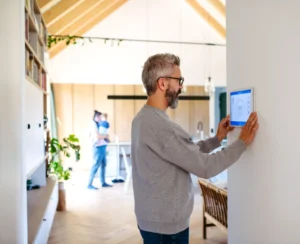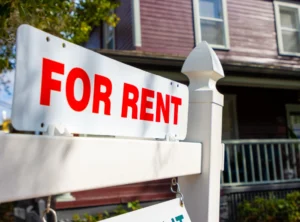4 Tips on How to Screen Tenants
 Screening tenants is one of the most essential parts of being a landlord. With good tenants, you can enjoy peace of mind and fewer problems. Bad, problematic tenants are often the demise of many landlords in the industry. A bad tenant that consistently avoids paying rent can turn into a squatter eventually which makes selling your property later on difficult. Even in a place like the City of Brotherly Love, this can still become an obstacle. If you are a homeowner that has wondered how to sell my house in Philadelphia with a squatter, you may unfortunately receive limited offers. Instead of hoping that the tenant is trusted, screen them carefully to avoid future problems. Here are four helpful tips on how to screen tenants:
Screening tenants is one of the most essential parts of being a landlord. With good tenants, you can enjoy peace of mind and fewer problems. Bad, problematic tenants are often the demise of many landlords in the industry. A bad tenant that consistently avoids paying rent can turn into a squatter eventually which makes selling your property later on difficult. Even in a place like the City of Brotherly Love, this can still become an obstacle. If you are a homeowner that has wondered how to sell my house in Philadelphia with a squatter, you may unfortunately receive limited offers. Instead of hoping that the tenant is trusted, screen them carefully to avoid future problems. Here are four helpful tips on how to screen tenants:
Use a Rental Application
The first essential tip is to make sure you use a rental application. A rental application that goes the extra mile and requires a lot of information from the applicants will help you find trusted tenants. The sheer fact of requiring a good amount of information up front will automatically weed out many of the bad tenants. If a prospective tenant refuses to give information like their employer’s name or credit details, it might be because they have something to hide. Those that have stable employment and a good credit score won’t feel uncomfortable with letting you know.
Comply with the FHA
Another important tip is making sure you follow the Fair Housing Act strictly. This act says that you shouldn’t discriminate against potential tenants based on their background, religion, or race. You also have to comply with the code of ethics that the Fair Housing Act has created for landlords. When you follow it with all tenants, you’re protecting yourself from discrimination lawsuits and being fair. Besides the fact that you’re protecting yourself against legal issues, choosing tenants based on essential characteristics like their employment, credit score, or trustworthiness will protect you in the long run.
Meet Tenants Face-to-Face

Many rental deals are done over the internet, so the landlord sometimes never meets the tenant in person until they move in. This seems convenient at first, but it’s also quite risky. A best practice is to meet your potential tenants face-to-face so that you can know more about them and their personalities before making anything official. It also lets you put a name to the face. When you meet them, you can trust your instincts based on what you notice during the conversation.
Complete Background Checks
 Completing tenant background checks is also quite important when looking for potential tenants. When a prospective tenant fills out the application you give out, check if they have a valid ID that matches their name, address, and other relevant information. Then, run a tenant screening report with the information given in the application. This might seem time-consuming and a bit intrusive, but it’s worth it. This way, you know which tenants are lying about their employment, financial situation, and past living situation. If they’re lying on the application, the chances are higher that they will lie to you more in the future about other important matters, such as why the rent is late.
Completing tenant background checks is also quite important when looking for potential tenants. When a prospective tenant fills out the application you give out, check if they have a valid ID that matches their name, address, and other relevant information. Then, run a tenant screening report with the information given in the application. This might seem time-consuming and a bit intrusive, but it’s worth it. This way, you know which tenants are lying about their employment, financial situation, and past living situation. If they’re lying on the application, the chances are higher that they will lie to you more in the future about other important matters, such as why the rent is late.
In conclusion, taking the time to screen your tenants will go a long way in protecting yourself as a landlord. One bonus tip is to ensure you don’t lie to potential tenants the same way you don’t want them to lie to you. By following these tips, the chances of landing with a good tenant are high.













 Accessibility
Accessibility